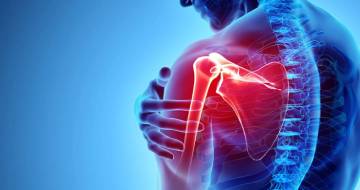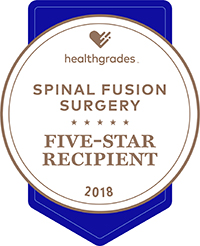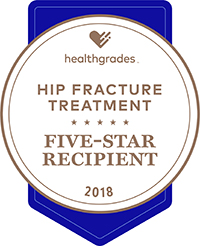Orthopedics
Delray Medical Center can help heal your shoulder injuries by giving you access to a large and experienced team of ortho...
Some joints are beyond rehabilitation. If you're moving in pain, learn about how joint replacement can get you back to d...
Learn about our minimally invasive Anterior Approach Total Hip Replacement – an alternative to traditional hip replaceme...
Pinecrest Rehabilitation Hospital’s Outpatient Physical Therapy Rehabilitation is committed to providing patients ...
Get information on evaluating foot or ankle pain and stiffness, treatment, and physical therapy offered through Delray's...
Whether you’ve dislocated your shoulder, torn a ligament, or are experiencing the pain and discomfort of tendoniti...
Orthopedic Services
Find an Orthopedic Specialist
Of All the Nerve! Sciatica – What It Is, How to Treat It
The sciatica nerve has a lot of nerve. It is, in fact, the largest nerve in the body. The sciatica nerve controls muscles in the back of your knees and lower legs and provides feeling to the back of your thighs, part of your lower legs, and the soles of your feet. Pain, weakness, numbness, or tingling in those areas is a sign of sciatica, which is a problem with the sciatic nerve and a term used to describe a set of symptoms caused by an underlying medical condition. Sciatica is not a medical diagnosis.
Often the pain in the sciatica nerve, which can be a burning sensation or shooting pain, starts in the lower back and extends down your leg to your calf, foot, or even your toes. Some people also have numbness, tingling or muscle weakness in the affected leg or foot. You might have pain in one part of your leg and numbness in another part and, usually, it is on only one side of your body.
The level of pain is wide ranging, from a mild ache to a sharp, burning sensation or excruciating. Sometimes the pain can feel like a jolt or electric shock. Prolonged sitting can aggravate symptoms, which can also be worse when you cough or sneeze.
What are the Causes of Sciatica?
In about 90% of cases, sciatica is caused by a ruptured intervertebral disk, also called a herniated disk. The spine is made up of 26 bones, called vertebrae, and in between each are soft, pillow-like disks that act as cushions. The disks also keep the vertebrae in place and allow your backbone to move so you can bend and stretch. Over time, the disks can weaken or rupture, with the jelly-like center pushing out of the disk and irritating the nearby nerves. This is called a herniated disk.
What Causes a Herniated Disk?
A single excessive strain or injury can cause a herniated disk. However, age also can be a factor as disks naturally degenerate as one ages, and the ligaments that hold it in place begin to weaken. As this degeneration progresses, a twisting movement or relatively minor strain can cause a disk to rupture.
Other Causes of Sciatica
Sciatica can also be caused by spinal stenosis, a narrowing of the spinal canal that puts pressure on the nerve, or an injury, such as a pelvic fracture. In many cases of sciatica, no cause can be found.
Sciatica Risk Factors
- Age – Age-related changes in the spine, such as herniated disks and bone spurs, are the most common causes of sciatica.
- Obesity – Excess body weight, which increases stress on the spine, can contribute to the spinal changes that cause sciatica.
- Prolonged sitting – People who sit for extended periods or lead an inactive lifestyle are more likely to develop sciatica than those who are active.
- Diabetes – This condition, which affects the way your body uses blood sugar, increases your risk of nerve damage.
When to See a Doctor
Mild sciatica usually goes away over time with rest and over-the-counter pain relievers, such as ibuprofen. Call your doctor if self-care measures fail to ease your symptoms or if your pain lasts longer than a week, is severe or becomes progressively worse.
Get immediate medical care if:
- You have sudden, severe pain in your low back or leg and numbness or muscle weakness in your leg
- The pain follows a violent injury, such as a traffic accident
- You have a loss of bowel or bladder function
Your doctor will ask you questions about your symptoms, give you an exam and check you for numbness, weakness, reflexes changes, and pain. He or she will probably order X-rays or other pictures, such as a CT Scan or an MRI, to see whether you have a herniated disk. There are also nerve tests your doctor can order that can determine what nerves are involved, if there is nerve damage and how well your nerves are conducting feelings.
Treatment May Include
- Low-level of activity
- Nonsteroidal anti-inflammatory medication
- Physical therapy
- Surgery, if conservative treatment options do not reduce or end the pain altogether
Sources:
Medline Plus
American Association of Neurological Surgeons
Spine Health











